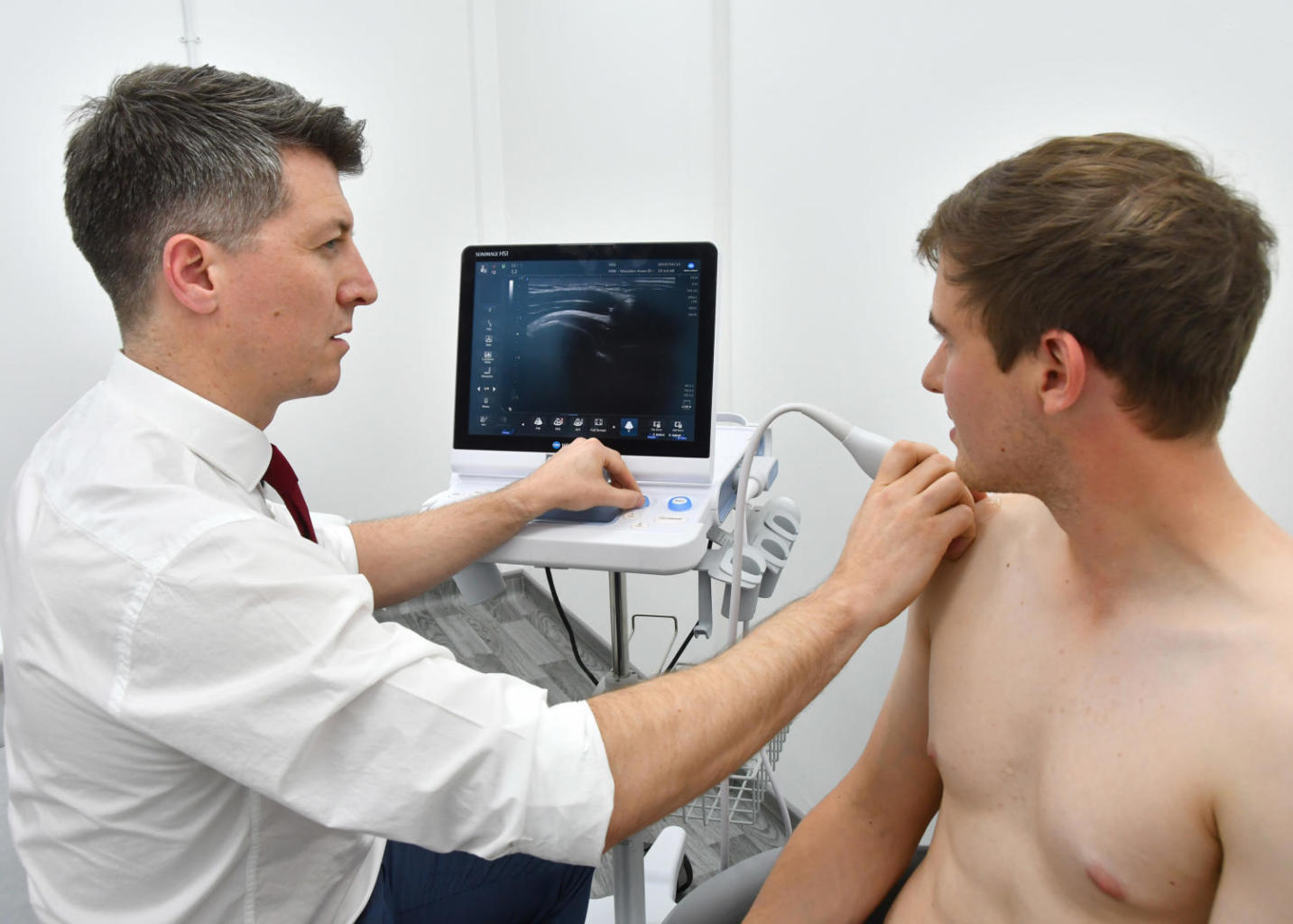This month Sarah Rayner, Lead Physiotherapist and Musculoskeletal Sonographer at Yorkshire Sports Medicine, talks us through shoulder pain and ultrasound.

Shoulder pain and weakness can have a real impact on day to day life. Shoulder pain has become more common over lockdown as we have had more time to be involved in gardening and DIY tasks. It is likely to affect many others now as we are able to return to sport and the gym. Finally, accidents and falls can lead to unexpected shoulder problems.
The majority of shoulder disorders can be diagnosed by our specialist physiotherapists or sports medicine doctors at Yorkshire Sports Medicine and Physiotherapy Clinic. This is done by listening to how the pain started and what the effects of this have been on your day to day life. Following this, we will examine the movement in your shoulder as well as perform some special tests on the tendons and ligaments.
Shoulder disorders tend to fall into one of three groups – a painful shoulder, a stiff shoulder and finally an unstable or loose shoulder. This article sets out to discuss the painful shoulder.
Painful shoulder
Pain is the most common feature of most shoulder problems. It is usually gradual in onset, developing slowly over days or weeks. In these situations, the pain is often related to a problem with the tendons in the shoulder rubbing or catching on the bone in the top part of the shoulder. This can lead to pain especially when lifting the arm away from the side of the body.
Sometimes weakness can develop, usually related to performing overhead tasks. When this becomes an issue, it may be a sign of a more serious tendon injury. To get to the bottom of this will often need an ultrasound scan.
Ultrasound Scans
This form of imaging is essential in getting to a diagnosis in cases of painful and weak shoulders. An ultrasound scan does not involve any harmful radiation.
Ultrasound scans are an excellent way of assessing shoulder problems following a clinical assessment. An ultrasound scan also has an important role in examining a shoulder after an injury when some movement tests are just too painful. Ultrasound scans are very good at viewing the shoulder for tears of the rotator cuff tendons, rubbing of the tendons (impingement), inflammations (bursitis) and calcium deposits. One advantage that an ultrasound scan has over MRI scans is that it is dynamic and therefore can assess the shoulder as it moves.
At Yorkshire Sports Medicine and Physiotherapy Clinic we offer a comprehensive assessment of all shoulder problems with our experienced clinicians. We are also able to offer a shoulder ultrasound examination to assist in being able to get to the bottom of the problem using the latest ultrasound equipment.
Call 01904413669 or email info@yorkshiresportsmedicine.co.uk to book your consultation.
Visit Yorkshire Sports Medicine’s website here.









Add a comment